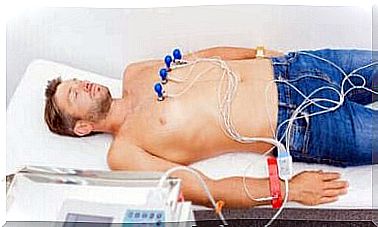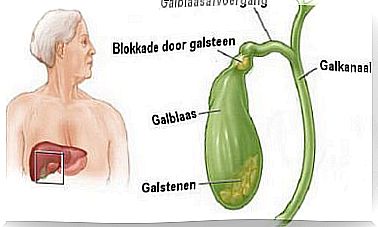7 Appendicitis Symptoms You Shouldn’t Ignore
Do you know the symptoms of appendicitis?
Appendicitis, also called appendicitis, is a disease caused by the blockage and inflammation of the appendix, a small organ connected to the first part of the colon.
7 symptoms of appendicitis
1. Sharp abdominal pain
Suffering from sharp abdominal pain is one of the first symptoms of appendicitis.
This symptom, which gradually worsens, is the result of the inflammation and pressure on the organ.
- This feeling usually occurs in the lower abdomen. The intensity of the pain varies in the span of several hours.
- However, in many cases the pain is also felt around the navel or lower back.
- This symptom gets worse when you sneeze or move your legs or abdomen.
2. Nausea and Vomiting
The next of the appendicitis symptoms that we want to discuss are nausea and vomiting. This is a warning that the appendix is inflamed.
These symptoms are accompanied by a feeling of weakness.
This occurs in 90% of cases. It goes along with the sharp abdominal pain in the lower abdomen.
If the vomiting occurs repeatedly, the person in question should see a doctor immediately. Even though it’s not always a symptom of appendicitis, it does indicate that something isn’t right.
3. Constipation or Diarrhea

Some patients with appendicitis have difficulty passing stools. Others, however, are confronted with diarrhea.
These intestinal complaints, which can also be caused by other diseases, are the result of the inflammation of this organ.
They tend to affect patients over the course of the day. In most cases, they are accompanied by gas and inflammation.
4. Abdominal Distension
A swollen stomach gives an uncomfortably full feeling and a pressure that can arise from digestive problems.
This makes the abdomen look swollen.
- This is one of the most common symptoms of appendicitis. It results from the inflammatory response in the tissues and the accumulation of gas.
5. Fever

The symptoms of this disease often resemble those of people with stomach and intestinal infections.
Along with the pain, it is therefore very common for the patient to exhibit moderate fever and chills.
- So it is essential to see a doctor if the fever increases or constantly reappears.
- If the temperature rise is mild but it occurs at the same time as abdominal pain, it is also necessary to go to the doctor.
6. Loss of Appetite
Even if people usually eat well, they can suddenly lose their appetite.
The inflammation of this organ disrupts digestion. In many cases, it inhibits the production of hunger hormones.
- This should be treated immediately as not eating properly can lead to nutritional deficiencies.
- However, it is important to analyze this symptom along with other symptoms. After all, it also occurs in other diseases.
7. Rebound Pain
Rebound pain is a symptom that allows appendicitis to be more accurately identified.
This usually happens during a medical exam and it appears when the lower right part of the abdomen is pressed.
- It is a sharp, stabbing pain that varies in intensity when pressure is applied.
- When the affected area is released, the pain is felt even worse and this makes it possible to identify the disease.
Are you experiencing any of the appendicitis symptoms mentioned in this article? If so, it is best to see a doctor as soon as possible to determine whether it is due to this disease or not.
Recognizing the problem early will help prevent complications and get you treated quickly.









